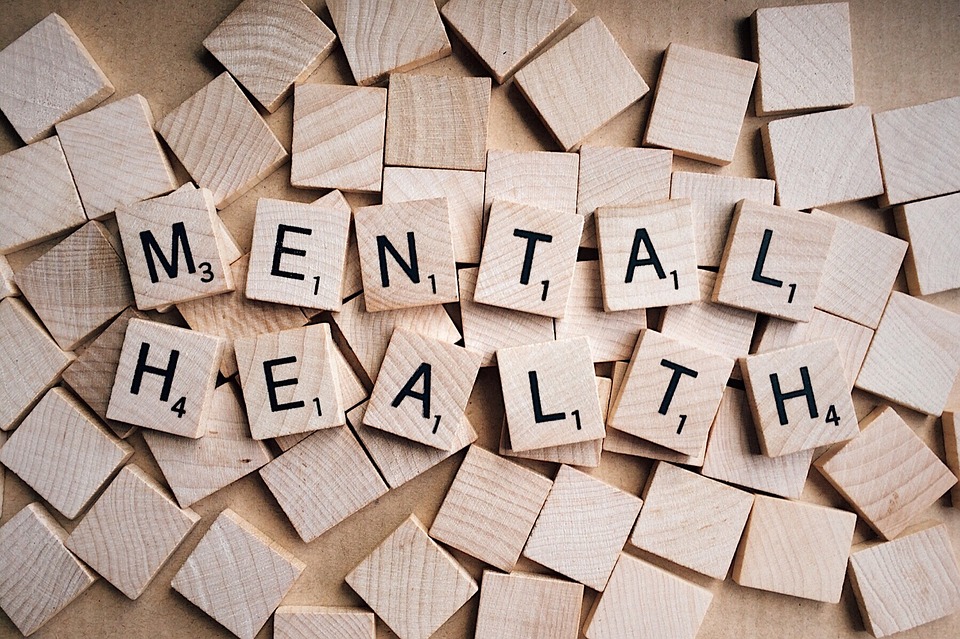Break the Stigma Around Mental Health; Here Are 8 Everyday Things You Can Do!
Mental disorder is not shameful, but the stigma is. Sadly, stigma aggravates the condition of people suffering from mental illness.

Sociologist Erving Goffman (1963), defined the term “Stigma” as an attribute that spoils a person’s identity, reducing him or her in others’ minds from a whole and usual person to a tainted, discounted one.
Stigma can lead to negative consequences for that particular group or individual.

Source: Pixabay
Mental disorders are health conditions characterised by significant dysfunction in an individual’s cognitions, emotions, or behaviour. This reflects a disturbance on the psychological, biological, or developmental processes underlying mental functioning. These are not considered part of the normal development of an individual’s culture (American Psychiatric Association 2012).
Unfortunately, in our society, no one ever says “It is just tuberculosis, just get over it,” but same is not the case when someone is suffering from mental disorder or illness. People with mental illnesses are ashamed to reveal anything about their illness because of the negative connotation attached to the words “mental disorder”.
Mental disorder is not shameful, but the stigma is. Sadly, stigma aggravates the condition of people suffering from mental illness. Also, when it comes to mental health, in rural India it is still more common to see people taking that person to faith healers or temples than to professionals like psychologists or psychiatrists.
There was a study done in South India, which was published in American Journal of Psychiatry by Raghuram, Weiss, Mitchelle, Channabasavanna, Devins and Gerald on “Stigma, Depression and Somatization in South India.”
It was found that the tendency to perceive and report psychological distress is influenced by various social and cultural factors, including the degree of stigma associated with particular symptoms.
According to Graham C.L. Davey, mental health stigma is characterised by two distinct types: Social Stigma and Self-stigma.
Social stigma can be characterised by discriminating attitude, behaviour and prejudice against people suffering from mental illness. Self-stigma is the internalisation of discrimination and prejudice by the person who is suffering from mental illness.
In everyday lives, members of the society can play a significant role in reducing the stigma around mental health by taking few steps.
1) Separating the individual from the disorder

Spurce: Pixabay
We should always remember that the mental illness or the disorder is just a part of that person and it does not define the person. Just by being a bit more mindful about the way we address the sufferers can play a significant role.
Instead of saying that “He is autistic,” or “She is schizophrenic,” one should say “He is suffering from autism,” or “she is having Schizophrenia.” Language matters. Let’s not use mental disorders as adjectives.
2) Acknowledge the facts
We should be able to ignore the myths and misconceptions related to mental health and different disorders and instead acknowledge the prevalent facts and reality and about it.
3) Education

Picture for representation only. Source: PxHere
It is related to the earlier point. It is very important for each of us to educate ourselves as well as others regarding various mental health issues, illnesses and disorders. We spread knowledge about mental disorders to our friends, colleagues, family, etc. whenever possible.
4) Looking at them from a positive perspective
The disorder is just a part of the person. We should look at their various positive aspects – even they are responsible and make valuable contributions to the society. Let’s applaud their positive stories. Let’s see them beyond their mental illness.
5) Empathize
We can place ourselves in their shoes and look at the world from their perspective. We need to understand them, support them and encourage them to cope with their illness. We need to show compassion towards them. It’s something that they really need.
6) Inclusion

Picture for representation only. Source: Pixabay
We should include people with mental disorders in various aspects. In fact, in Canada, it is against the law to exclude people with mental health problems. They have every right to take an equal part in the society. Let’s not deny them of that. They have the right to live an empowered life.
7) Mental illness is not different from physical illness
It is very necessary to understand and accept the fact that both mental and physical illnesses are on the same level. If one is not being judged or seen negatively for asking a professional help for the pain in their abdomen, then who are we to judge them if they seek help for depressive symptoms?
8) Encouragement
We need to encourage and support people suffering from mental health disorders to come out and talk about the same openly. For example, recently Bollywood actress Deepika Padukone made a bold move by admitting that she was suffering from depression and anxiety. Encouragement can really help them be comfortable with themselves.
(Written By Riddhi Panchal, The MINDS Foundation)
Like this story? Or have something to share? Write to us: [email protected], or connect with us on Facebook and Twitter.
NEW: Click here to get positive news on WhatsApp!
If you found our stories insightful, informative, or even just enjoyable, we invite you to consider making a voluntary payment to support the work we do at The Better India. Your contribution helps us continue producing quality content that educates, inspires, and drives positive change.
Choose one of the payment options below for your contribution-
By paying for the stories you value, you directly contribute to sustaining our efforts focused on making a difference in the world. Together, let’s ensure that impactful stories continue to be told and shared, enriching lives and communities alike.
Thank you for your support. Here are some frequently asked questions you might find helpful to know why you are contributing?


This story made me
-
97
-
121
-
89
-
167











